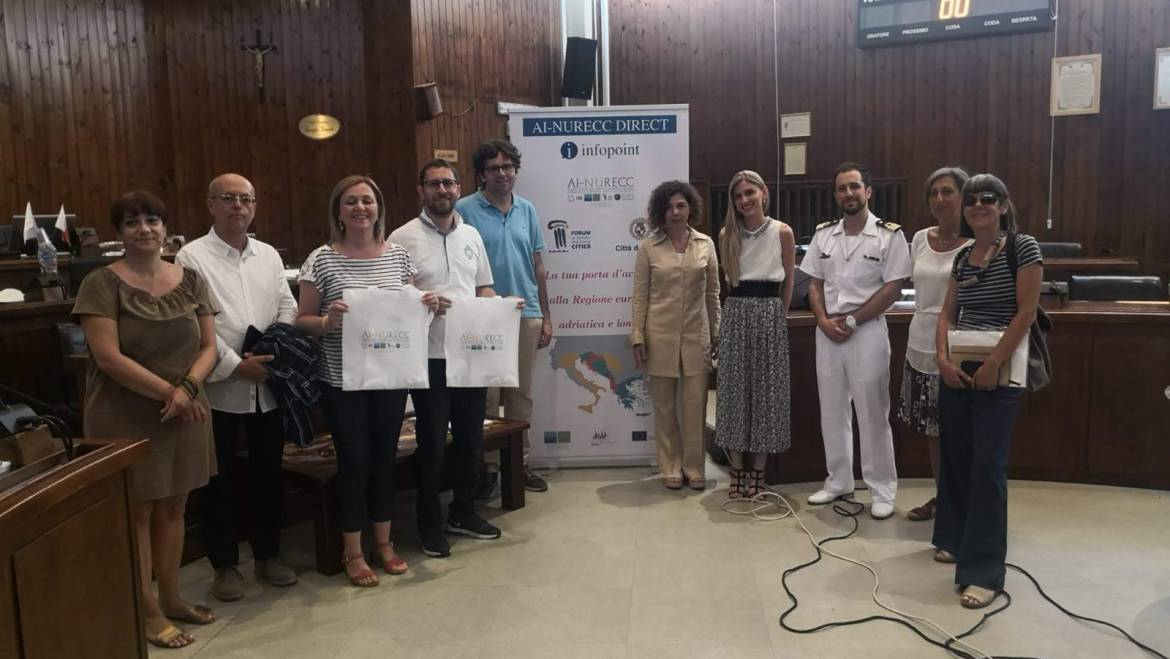On 4 July at the Council Chamber of the Municipality of Vasto the event promoted by AI-NURECC Infopoint was held “THE MARINE ENVIRONMENT FISHING FOR LITTER AND MARINE LITTER MANAGEMENT”
Particpant: Francesco Menna – Mayor of the city of Vasto and President of the FAIC, Anna Bosco – Councilor for European Policies, Paola Cianci – Councilor for the Environment, Angela Di Francesco – Project Manager AI-NURECC Direct Infopoint, Angela Stanisci – Professor at the University of Molise, Mariacarla De Francesco – Ph.D. University of Molise, Paolo Malatesta – Motopesca Vasto Cooperative, Commander TV Lorenzo Bruni – Harbor Master’s Office, Giuseppe Di Marco – Legambiente Regional President, Fabrizia Arduini, President of the WWF Frentana Zone and Costa Teatina, Vincenzo Olivieri – President Cetacean Studies Center, Davide Fanelli – Pulchra Technical Area Manager.
The event follows numerous meetings with the local navy, environmental associations, and waste sector operators in which Angela Di Francesco, Project Manager of the AI-NURECC Infopoint, took part. The round table was an opportunity to address the critical issues of the Marine Environment for coastal cities and specifically for those in which there is a port and a local navy.
The presence of fishing activity is an element of great wealth for the coastal cities, both in terms of economic income, but also of maintaining the typical maritime traditions. For the environment it could represent a critical issue as regards the accidental loss of tools (such as ghost net), and polystyrene packaging for the transport and sale of the catch. But, still in the environmental field, it is also a great opportunity.
The navy can take on a new, central and decisive role in the recovery and management of the marine litter, through the fishing for litter.
During the meeting the organizations involved, the Municipal Institutions, the representatives of environmental associations, the local marine industry associations, the University, the Port Authority and the waste management company, identified possible actions to limit, counteract and act on the Marine Litter. Among these is the central coordination between the actions of fishing waste at sea by fishing boats, the creation on the quays of ecological islands through the coordination of the institutions and the waste management company, the monitoring by environmental associations and the collection of data from the University.
The meeting led not only to the identification of general guidelines, but also the commitment to implement a project of collection at sea and management of the marine Litter, of which the University of Molise will be the leader and which will involve the entire partnership group.
The project will be presented by the beginning of August and will give a tangible and effective response to the recovery and management of waste at sea.
The table also discussed circular economy and how waste can be transformed into new resources by developing a chain of recovery, recycling and reuse. This topic will instead be the subject of an Adriatic project with the involvement of partners from the Macro Adriatic-Ionian Region.


